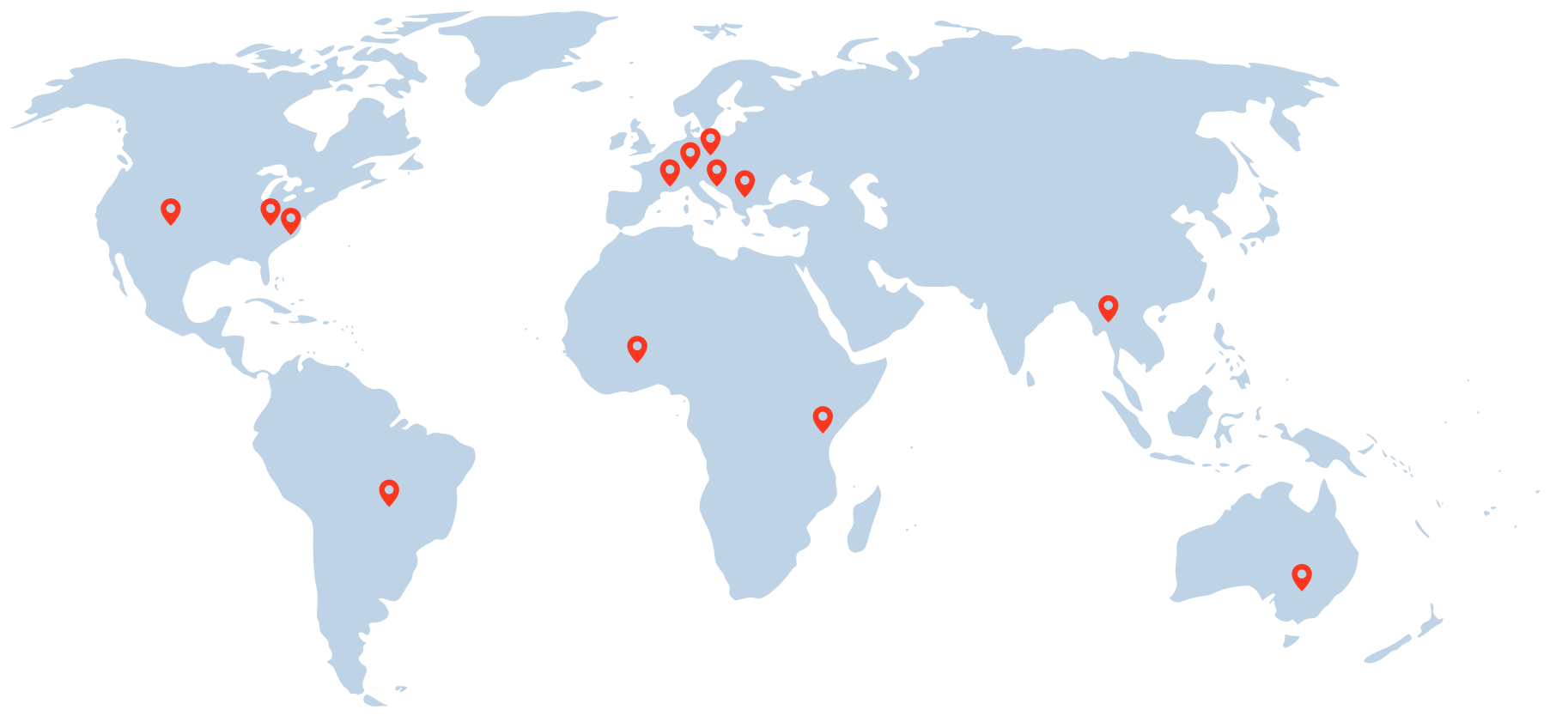The German Institute of Development and Sustainability – IDOS was originally established as German Development Institute / Deutsches Institut für Entwicklungspolitik (DIE) in 1964 in Berlin to provide post-graduate training for professionals in development cooperation. It has been renamed in 2022. In 2000, the institute moved from Berlin to the UN City of Bonn. DIE has become one of the world’s leading research institutes in development policy and global development.
DIE builds bridges between theory and practice through work based on the interplay between Research, Policy Advice and Training. Research at IDOS is theory-based, empirically-driven and application-oriented. It provides the basis for the advisory activities of the Institute. IDOS develops policy-relevant concepts, advises ministries, governments and international organisations, and refers to current policy issues. The training programmes of the Institute for university graduates and young professionals are integrated into research and advisory processes.
IDOS has built a strong reputation in environmental policy and natural resources management, examining strategies for the sustainable use of natural resources and the protection of the environment in developing countries as well as on a global scale. Focus areas include changes in multilevel governance, governmental mechanisms, policies, and strategies with regards to forest, land, and water, and climate governance. Particular attention is paid to the possible trade-offs between ecological, economic, and social sustainability.
Since 2015, IDOS’s Klimalog Project (including 14 researchers and supporting staff) promotes dialogue and conducts research to better connect and understand global climate and development policies. Klimalog is dedicated to advancing research and dialogue for a climate-smart and just transformation towards sustainable global development. It focuses on key issues in ongoing UN climate negotiations and their implications for international cooperation with developing and emerging economies. On the one hand, Klimalog raises awareness for interlinkages between climate and development policies, and furthers goal oriented dialogue between actors in politics, academia, civil society and the private sector. On the other hand, Klimalog investigates regulatory measures to decouple the global economy from fossil energy (decarbonisation) and to adapt to the impacts of climate change (resilience). Particular attention is paid to issues of global equity and burden-sharing, the role of transnational actors, synergies and trade-offs between different policies and measures as well as on policy challenges at different levels of governance.
In 2015 the International Center for Climate Governance (ICCG)’s “Climate Think Tank Ranking” ranked IDOS as one of the best climate think tanks in the world (#13 in the absolute ranking).
Teaching
Managing Global Governance
Global society has to deal with increasingly demanding challenges. How can human security and human rights, the stability of natural resources, and sustainable prosperity be realised worldwide? At the same time, global centres of power are shifting towards the South and East and there is increasing demand by the developing countries and rising powers to have a say in international decision-making. Despite these challenging parameters, the world has reached a significant turning point. In 2015, all member states of the United Nations adopted the 2030 Agenda for Sustainable Development, a global social contract with far-reaching impact. A few months later, in December 2015, the Paris Declaration led to a breakthrough in international climate protection.
The implementation of these ambitious endeavors for a new world order will be impossible without the contributions of rising powers and developing countries. Managing Global Governance (MGG) aims at dealing with this challenge. The MGG programme provides an innovative platform for training, knowledge cooperation and policy dialogue of government and non-governmental actors from important rising powers and Germany / Europe. All components are aimed at the joint development and implementation of contributions to address global challenges. MGG strengthens the institutional competencies of partner organisations and creates innovate knowledge for the implementation of the 2030 Agenda for Sustainable Development. The objective is that MGG partners are equipped for greater levels of participation in international political processes and for achieving impacts jointly.
IDOS Post-Graduate Training Programme
Each year, the nine-month Postgraduate Training Programme of the German Development Institute / Deutsches Institut für Entwicklungspolitik (IDOS) prepares up to 18 German and European university graduates for the challenging tasks and responsibilities of international development cooperation.
Participants learn to deal with the practical challenges of sustainable development in a globalised world. Core part of the training programme is a research project in a developing or transition country: within small and interdisciplinary groups, participants design and conduct a study for eleven weeks and later evaluate and conclude the results once they are back in Bonn.
To prepare participants for the job market, IDOS provides extensive advice and assists with the job application procedure. An excellent command of German is required to participate in the training course.
